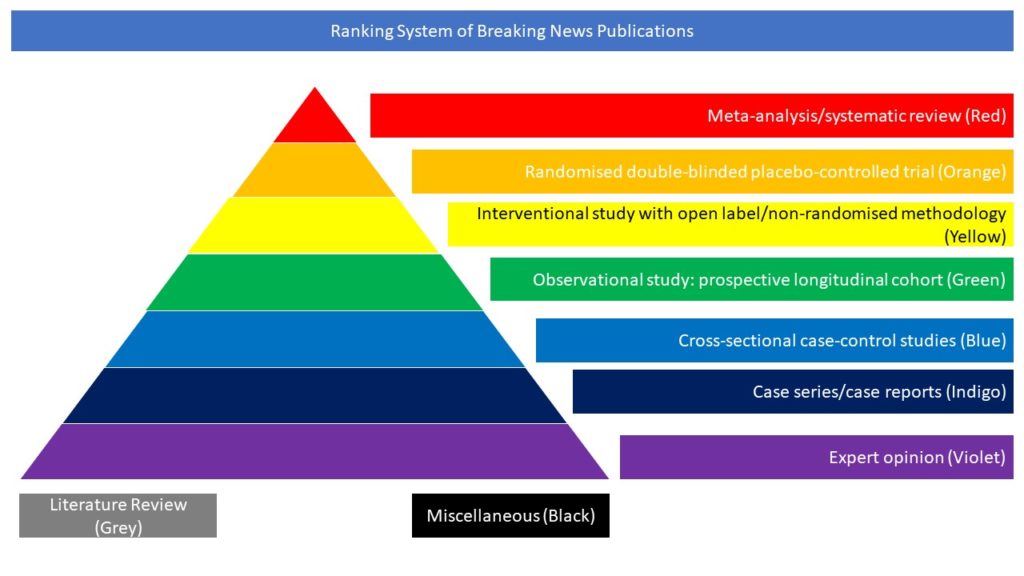Cross-sectional case-control studies (Blue)
mRNA-based COVID-19 vaccines are effective; however, persistent vaccine hesitancy is partly due to a misperception of their potential adverse events. Non-specific sensory symptoms (NSSS) following immunization are thought to be mediated by stress-related responses. In this case-control study, the authors evaluated NSSS from a cohort of 7,812,845 BNT162b2 first-dose recipients, of whom 10,929 reported an adverse event following immunization (AEFI). They found an overall frequency of 3.4% (377 cases) or 4.8 cases per 100,000 doses administered. Anatomically, the arms (61%) and face/neck region (36.2%) were the most commonly affected sites. The control group had significantly higher rates of reactogenicity-associated symptoms, suggesting that NSSS are reactogenicity-independent; in multivariable analysis, healthcare workers reported sensory symptoms less frequently (aOR 0.54; 95% CI 0.40-0.72;p < 0.001). This is the first study describing the topography and associated factors for developing NSSS among BNT162b2 recipients. The benign nature of these symptoms may help dissipate hesitation towards this vaccine.
García-Grimshaw M, Ceballos-Liceaga SE, Michel-Chávez A, García-Alanis M, Cadena-Fernández A, Galnares-Olalde JA, Carbajal-Sandoval G, Carrillo-García DA, Hernández-Valdivia N, Hernández-Vanegas LE, Saniger-Alba MDM, Gutierrez-Romero A, Díaz-Ortega JL, Reyes-Terán G, López-Gatell H, Flores-Silva FD, Cantú-Brito C, Chiquete E, Arauz A, Valdés-Ferrer SI. Transient sensory symptoms among first-dose recipients of the BNT162b2 mRNA COVID-19 vaccine: A case-control study. Vaccine. 2021 Oct 29;39(48):6975–9. doi: 10.1016/j.vaccine.2021.10.058.










